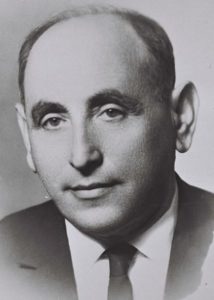The Miracle Worker
Rabbi Meir (2nd century CE) was born in what is today Turkey to a family of Roman converts to Judaism. He was descended from the Roman Emperor Nero. Rabbi Meir was one of the 24,000 students of the illustrious Rabbi Akiva. While nearly all of the students tragically perished during the Bar Kochva Revolt (132-136 CE), Rabbi Meir was one of five who survived, and the Talmud credits them with going on to revive Jewish life in the Holy Land and save Judaism from extinction. Rabbi Meir played a key role in the later production of the Mishnah, the earliest compilation of Jewish oral laws. In addition to being one of the most oft-cited voices in the Mishnah, every anonymous Mishnaic teaching is attributed to Rabbi Meir, too. During the war with the Romans, Rabbi Meir’s father-in-law, Rabbi Chananiah ben Teradion was killed, and his sister-in-law was taken captive. The Talmud relates that Rabbi Meir dressed up as a Roman officer and went past enemy lines to save her, managing to extricate her from a Roman brothel. After the war, he helped to re-establish the Sanhedrin, and was widely recognized as the greatest sage of his generation. He was also known to work miracles, and is often called Rabbi Meir Ba’al haNes, “the miracle-worker”, probably originating from the fact he was miraculously saved from numerous dangerous incidents. In fact, there is an old Jewish custom to invoke his name when in danger, saying Elokah d’Meir ‘aneni! (אֱלָקָא דְמֵאִיר עֲנֵנִי), “May the God of Meir answer me!” (Or “May God answer me like He answered Meir!”) The same phrase is recited when a person can’t find a lost object and needs help from Above. Some say “Meir” was only his nickname—because he was an “illuminator”—and his real name may have been Nehorai or Elazar. According to some sources, Rabbi Meir’s yahrzeit is today, the first of Tevet.
Government Leaders Around the World Light Menorahs
Words of the Week
An Israeli soldier bears not only a duty to enlist in compulsory military service, but is granted the zechut, privilege, to fulfill a holy commandment, a mitzva, of guarding his fellow Jews.
– Rabbi Nathan Lopes Cardozo



